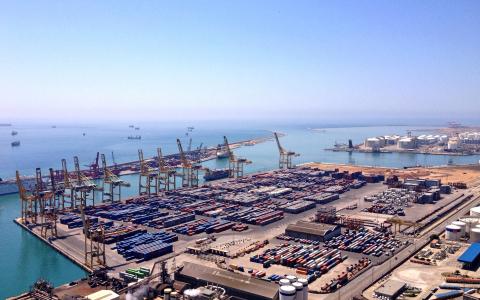
(Bloomberg) - Rising helium costs, missing auto parts, and shipping delays are spurring a new wave of financial trouble for companies already saddled with debt amid broader concern that the US economy is on the brink of a downturn.
Companies from Party City Holdco Inc. to Diebold Nixdorf Inc. have reported earnings in recent weeks that were crushed by supply chain pressures and red-hot inflation. One company, Armstrong Flooring Inc., has already been pushed into bankruptcy after higher costs eroded its cash. And auto collision repair company Service King is negotiating with creditors over ways to ease its debt load as it struggles to secure auto parts and get mechanics back to work.
Representatives for Armstrong Flooring and Diebold Nixdorf declined to comment, while Party City and Service King didn’t respond to a request for comment.
It’s an acceleration of a trend that emerged at the end of last year, as companies hit with rising prices struggle to pass on these costs to customers. Specialists in troubled companies say that the pain isn’t going to let up any time soon, as supply chain issues show no signs of improving while consumer demand is set to slow due to higher interest rates.
“Those three factors are for sure a recipe for distress, and we’re starting to see that,” Angelo Rufino, managing partner and chief investment officer of Brookfield Special Investments, said in an interview. “We are rapidly sharpening our pencils.”
The bleak outlook drove the amount of corporate debt trading at distressed levels to $146.1 billion for the week ended May 20, the highest level since December 2020. US bankruptcy filings also hit a one-year high at the start of the month amid a broader pickup in filings with at least $50 million in liabilities.
The Federal Reserve’s plans to tamp down on inflation with aggressive rate hikes only adds to the woes of distressed companies. Higher interest rates will make it difficult for them to make debt payments, according to Sanjeev Khemlani, leader of the senior lender advisory practice at FTI Consulting Inc.
Steeper borrowing costs may also spur a new set of so-called “zombies,” companies that have run of out cash but don’t have any triggers on their debt that could allow lenders to push the firm to file for bankruptcy, Khemlani said.
The removal of Covid-19 support, such as foreclosure moratoriums and stimulus payments, coupled with higher prices, will make consumers cut back on their spending this year, further pressuring earnings, Melanie Cyganowski, a former bankruptcy judge and partner at Otterbourg PC, said in an interview.
Retail will come under stress due to high transportation costs, as will health-care companies, which have higher labor costs, she said.
“I think we are in a perfect storm,” she said.
Consumer demand over the next few quarters will determine whether the financial pressures these firms face will develop into a full-blown default cycle.
Punishing Time
Companies that are unable to raise prices enough to offset burgeoning costs are being penalized by investors when their earnings fail to meet expectations.
Diebold Nixdorf’s bonds, for example, fell a record 39 cents in a single day after the maker of automated teller machines reported a larger-than-expected loss. The ability to buy and sell credit has tightened amid the broader market conditions, which has exacerbated bond moves, Brookfield’s Rufino said.
But increasing prices for consumers may not be sufficient to offset supply chain woes, as Armstrong Flooring found. The firm, which negotiated amendments to its debt and tried to get acquired prior to filing for bankruptcy, also implemented a freight surcharge, but that still wasn’t enough.
“Simply stated, the company’s increasing costs significantly outpaced its pricing power,” Armstrong’s Chief Executive Officer Michel Vermette said in court papers.
These pressures will be magnified by Russia’s invasion of Ukraine, which has strained the global food supply system, leading to higher prices, said Jim Mesterharm, head of AlixPartners’s turnaround practice in the Americas.
“The supply chain challenges don’t necessarily have an end game set at the moment,” he said.
By Allison McNeely and Rachel Butt



